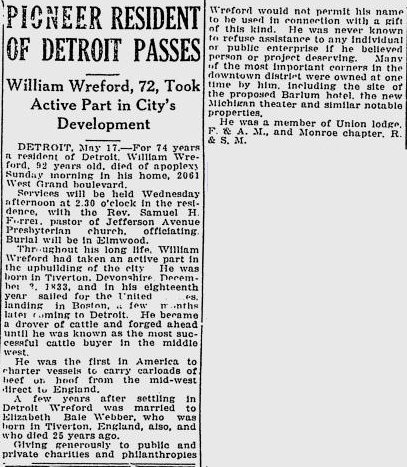Not directly related to Tiverton per se, but from the Tiverton Gazette as quoted in a book by Tiverton author Sarah Hewett. From page 179 of Nummits and Crummits:
ROMANTIC INCIDENT IN A WEST-COUNTRY WORKHOUSE.
THE workhouse at Taunton has been the scene of a romantic incident. On October 13th, 188?, a middle-aged man belonging to a neighbouring parish, arrived at the workhouse, his object being to find a housekeeper. Seeing the master, he said he had just lost his wife, and was in an awkward fix, as he had a situation and a cottage, but no one to cook his "grub." At the time of the conversation an inmate of the house, a widow, who had been allowed to store her furniture in an outhouse at the Union, was scrubbing the dining-hall floor, and to her the master put the question: "Would she like to interview the man with the view of becoming his housekeeper?" An affirmative answer was readily given, and the couple were left alone to settle the terms of the engagement. At the end of a half-an-hour, they requested the attendance of the master, who found them addressing each other familiarly as Willie and Annie. They asked him to draw up an agreement, setting forth that Willie would support Annie and her two children in return for her services as housekeeper. To please them the master complied, and Willie and Annie at once attached their signatures. Then in the presence of the woman, Willie, addressing the master, confessed to having a liking for Annie, and after much coy beating about the bush, he unbosomed himself, thus: "Well, ef 'er's aminded I'll go down an' gie notice to git married zo zoon's can be." With the hesitation of etiquette the engaged housekeeper, who, in a business-like fashion, had pocketed the agreement, said she would like to have until Monday to consider the proposal. After affectionately embracing the lovers parted. On Saturday, the object of this spontaneous passion, took to the master of the house a letter which she had received from Willie, and which was so affectionately worded that it might well be termed a love-letter. On Monday, Annie having consented, the couple and the two children drove off in a wagon, which Willie had brought for the purpose, the woman's furniture being taken away in the same conveyance. Before leaving, they thanked the master very warmly and intimated that they were going to be married without delay.
From Tiverton Gazette.
